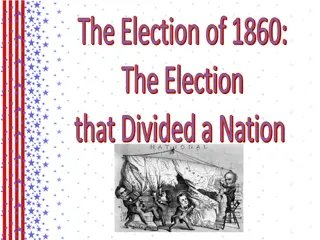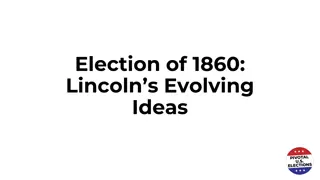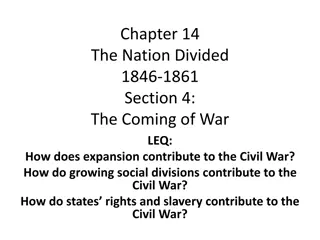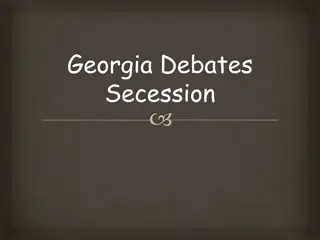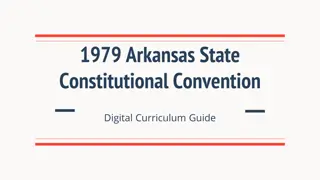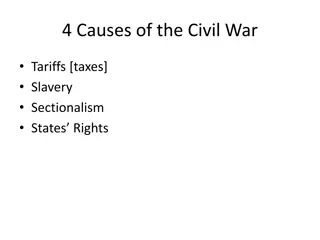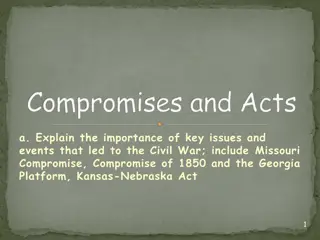Key Strategies and Events of the Civil War
Explore the key military, political, and economic strategies that influenced the outcome of the Civil War, from the secession of Southern states to the assembling of armies, resource disparities between the North and South, and contrasting military strategies of the Union and Confederacy.
0 views • 16 slides
The Election of 1860: A Divisive Campaign for the Future of the United States
The 1860 election was a significant moment in American history, marked by ideological divisions and the rise of Abraham Lincoln. The Republican Party, Southern Democratic Party, Democratic Party, Northern Democratic Party, and Constitutional Union all played crucial roles in shaping the outcome. The
1 views • 14 slides
Election of 1860: Lincoln's Changing Views on Slavery and Federal Authority
The election of 1860 marked a turning point, leading to secession of states and the start of the Civil War. Abraham Lincoln initially pursued a moderate stance on slavery to keep states in the Union. His evolving ideas on liberty, equality, and government are reflected in his speeches. The outcome s
0 views • 10 slides
Understanding the Factors Leading to the Civil War
Explore the key elements contributing to the Civil War, such as expansion, social divisions, states' rights, and slavery through the context of the election of 1860, secession of southern states, and the outbreak of the war. Delve into the impact of Abraham Lincoln's presidency and the division amon
0 views • 29 slides
Georgia's Secession Debate in 1861
The debate over secession in Georgia in 1861 involved conflicting viewpoints from representatives of different counties, emphasizing factors like slavery and economic interests. Eventually, Georgia seceded from the Union, with key figures like Alexander Stephens playing significant roles in the deci
0 views • 20 slides
Evolution of Arkansas State Constitutions: A Historical Analysis
Explore the evolution of Arkansas state constitutions through different time periods, from 1836 to 1874, reflecting the state's journey from territory to statehood, secession from the Union, Civil War, Union occupation, Reconstruction Era, and the writing of the final constitution. Students will ana
0 views • 15 slides
The Civil War: Key Events and Battles Overview
Explore the causes, events, and significant battles of the Civil War, from the disagreements over tariffs, slavery, sectionalism, and states' rights to pivotal moments like Lincoln's presidency, secession, the Emancipation Proclamation, and decisive battles at Gettysburg and Vicksburg. Witness the s
0 views • 9 slides
The Civil War: Causes, Advantages, and Impact
The American Civil War was ignited by South Carolina's secession in 1860, leading to conflict over slavery and states' rights. President Lincoln fought to preserve the Union, not abolish slavery. The war saw economic developments like the Homestead Act and Morrill Land Grant, along with increased ta
0 views • 11 slides
Understanding Antebellum Georgia: Causes of Secession and Compromises
Explore the political, economic, and social differences between the North and South in Antebellum Georgia, leading to the conflict of secession. Learn about key events like the Missouri Compromise, States' Rights and Nullification, and the Compromise of 1850 shaping the path to the Civil War. Unders
0 views • 15 slides
Key Compromises and Events Leading to the Civil War
The Civil War was influenced by key compromises and events such as the Missouri Compromise, Compromise of 1850, Georgia Platform, and Kansas-Nebraska Act. Tensions arose due to the issue of slavery expansion and the balance between free and slave states. The population distribution between the North
0 views • 19 slides

